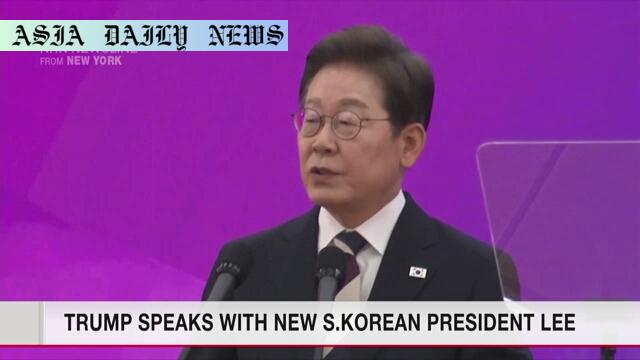Alliance: Trump and new South Korean President Lee discuss diplomacy, tariffs, and plans to deepen ties amid political challenges.

Strengthening the US-South Korea Alliance
The recent phone call between US President Donald Trump and South Korea’s newly-elected President Lee Jae-myung illustrates the enduring strength and evolving nature of US-South Korea relations. As Lee assumed office this week, his inauguration speech and this subsequent dialogue with Trump reinforced a commitment to mutual cooperation and diplomatic synergy. Recognizing their alliance as a cornerstone of South Korea’s foreign policy, Lee and Trump aligned their priorities, focusing on swiftly concluding a beneficial tariff agreement and fostering deeper economic collaboration.
During the 20-minute phone conversation, Trump expressed warm congratulations to Lee, while Lee reiterated the importance of their countries’ long-standing partnership. Their shared interest in maintaining a robust alliance was evident, particularly as they addressed the significance of pragmatic diplomacy in shaping regional stability. The phone call also reflected a spirit of camaraderie, with lighthearted exchanges about golf underscoring a personal rapport that could positively influence their working relationship going forward.
Deepening Economic and Diplomatic Ties
At the heart of their discussion was a commitment to advancing a mutually favorable tariff agreement. Negotiations surrounding trade policy have been a recurrent theme in US-South Korean relations, and both nations recognize the potential for such agreements to bolster their respective economies. Lee’s dedication to “practicality and national interest,” as outlined in his inaugural address, complements Trump’s agenda for economic growth driven by strategic partnerships.
Beyond economics, the summit invitation extended by Trump exemplifies the importance of high-level diplomatic exchanges. Such face-to-face meetings enable deeper discussions on pressing regional issues, including security threats and the need for trilateral cooperation with Japan. Lee’s proactive approach to fostering these ties reflects his vision for advancing South Korea’s influence through multipronged partnerships aligned with national priorities.
Overcoming Political Turmoil and Building a Fresh Start
South Korean politics has faced significant challenges in recent months, with political instability stemming from former President Yoon Suk-yeol’s controversial declaration of martial law last December. Lee’s administration must now work to restore public trust and usher in effective governance. His early actions, such as emphasizing international alliances and diplomacy, demonstrate a commitment to elevating South Korea’s position on the global stage.
The focus on rebuilding and redefining South Korea’s alliances is a strategic move to counterbalance regional uncertainties and ensure continued economic prosperity. By aligning with key international powers like the United States and Japan, Lee sets the stage for a transformative era in South Korean diplomacy.
Commentary
The Importance of Strong Alliances in Modern Diplomacy
The recent dialogue between President Trump and South Korean President Lee Jae-myung underscores the ever-important role of strong alliances in navigating today’s complex geopolitical landscape. As two nations deeply interconnected by shared history and strategic interests, the US and South Korea demonstrate how mutual goals can pave the way for significant achievements, both economically and diplomatically. The refreshing approach taken by both leaders to discuss not just issues of state but also personal matters like golf is a reminder of the human aspect of diplomacy.
Economic Collaboration as a Cornerstone
The focus on concluding a swift deal on tariffs is a pragmatic acknowledgment of the interconnected nature of global trade. Both the US and South Korea stand to benefit from reduced trade barriers, which can enhance mutual economic growth and stabilize their respective markets. Governments worldwide should view such collaborations as prime examples of how diplomacy can directly contribute to improving domestic economic outcomes. It’s particularly crucial during times of global economic uncertainty, where stable agreements between allies can serve as a buffer against broader financial disruptions.
Lessons for Regional Stability
Finally, Lee’s emphasis on improving trilateral relations with the US and Japan reflects a forward-thinking approach to regional stability. As neighboring nations face shared challenges, from security concerns to economic competition, fostering a spirit of cooperation rather than rivalry is essential. The new administration in South Korea brings with it renewed energy and fresh perspectives, which might lead to more robust partnerships and creative solutions to longstanding challenges. It will be intriguing to watch how this alliance shapes the region’s future.


